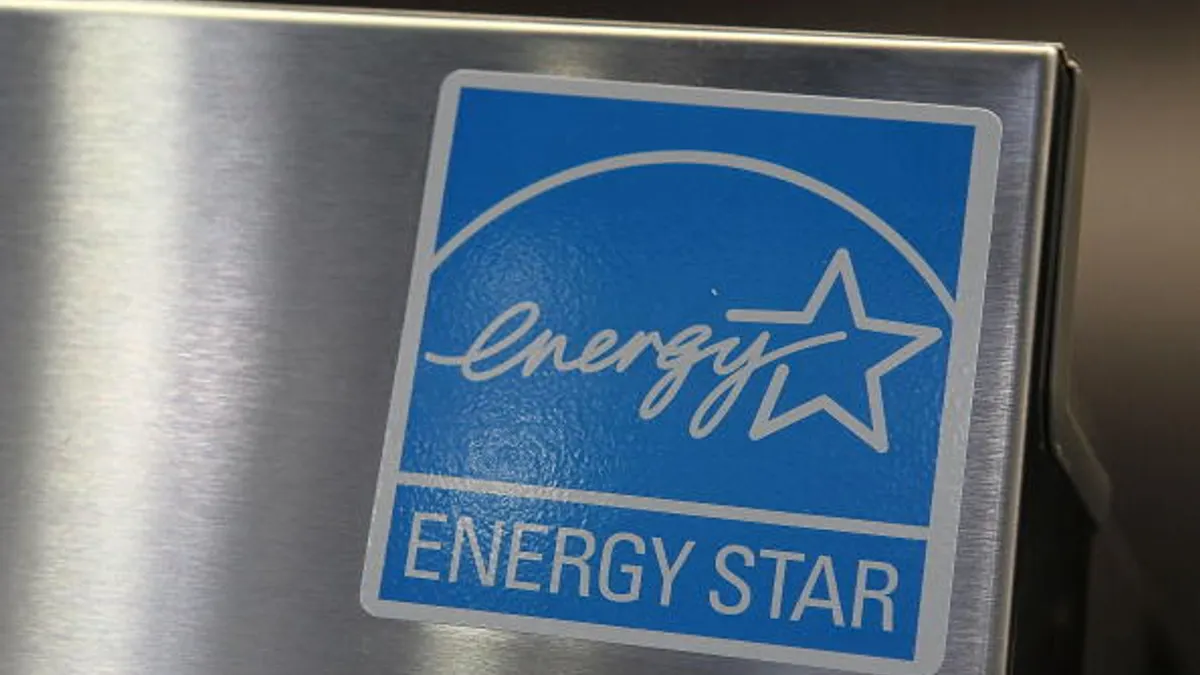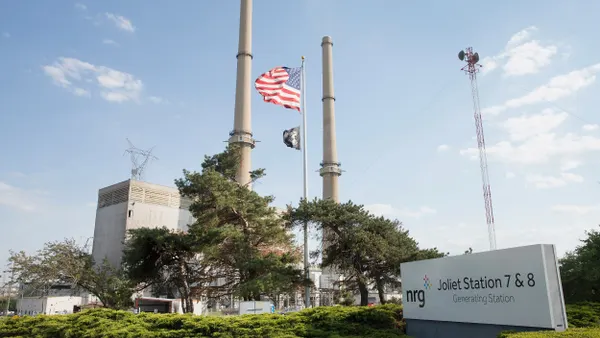UPDATE: June 20, 2019: The Maine House and Senate passed the RPS bill (LD 1494) and the solar bill (LD 1711) June 18. Gov. Janet Mills D, is expected to sign both.
Dive Brief:
-
Maine's legislature passed four clean energy bills this week, with more significant action on the way, according to renewables advocates.
-
The approved bills shift the role of the state's efficiency program to support electrification, direct regulators to approve a previously stalled offshore wind project, establish a climate council and create programming for clean energy job training. Two more bills are moving through the legislature that would update the state's renewable portfolio standard to 100% by 2050 and lift some of Maine's barriers to solar deployment.
-
Democratic Gov. Janet Mills in May unveiled a bill requiring the 100% standard, as well as a 45% reduction in greenhouse gas emissions below 1990 levels by 2030 and 80% by 2050. The new bill "will be the vehicle" for the state to reach that generation mix, Kathleen Meil, director of policy & partnerships at Maine Conservation Voters, told Utility Dive.
Dive Insight:
Clean energy policies developed under Mills mark a sharp departure from the previous administration.
Former Gov. Paul LePage, R, established a number of controversial energy policies including a wind energy moratorium that stopped all turbine development in the state and a controversial "gross metering" policy, which many saw as a rollback of net metering.
After the midterm elections, things changed quickly. Mills won and the Senate shifted democratic, giving Maine a majority in both legislative chambers. The wind moratorium was reversed in February and net metering was reestablished in March.
"One of the interesting things about this session has been that we have strong conservation and clean energy majorities in both chambers. And we have a governor who wants to make progress on clean energy and conservation," Kathleen Meil, director of policy & partnerships at Maine Conservation Voters, told Utility Dive.
"And so the question has been more about how bipartisan the support would be and less about whether we could eke out a victory. And certainly it's our preference to have the strongest bipartisan support possible because we really want to make durable, lasting change," she said.
| Bill | Description | Status |
|---|---|---|
| L.D. 1494 | Increases Maine's RPS to 80% by 2030 and 100% by 2050 while updating eligibility to focus on the highest value, lowest environmental impact resources. | Passed both chambers, awaiting governor's signature |
| L.D. 1711 | Directs the Public Utilities Commission to procure 375 MW of distributed generation and solicit bids for up to 400 MW of power from solar. Also expands metering cap on community solar participation. |
Passed both chambers, awaiting governor's signature |
| L.D. 1464 | Allows broader electrification to fit under efficiency programs, encouraging electric heating, transportation, etc. | Signed by governor June 18 |
| L.D. 1679 | Establishes the governor's climate council, which include representatives from all the state's departments as well as other energy and climate stakeholders. | Passed both chambers, awaiting governor's signature |
| L.D. 1282 | Establishes apprenticeship programs to encourage job growth in the clean energy sector, and makes it easier for schools to invest in solar panels. | Signed by governor June 17 |
| L.D. 994 | Directs the Public Utilities Commission to approve a long-term capacity project between University of Maine-led Aqua Ventus program and Central Maine Power for an offshore wind project that was stalled in 2017. | Signed by governor June 19 |
One of the more anticipated bills of the session has been the state's comprehensive solar bill, which is expected to drive deployment in the state by removing "arbitrary barriers" set up by the past administration, said Meil.
"Energy independence specifically is something that resonates really strongly with Maine people," said Meil. "We're talking about people who have cut the wood on their own land for generations and now they're saying, 'Wait, instead of cutting the wood, I can capture the sun that's shining on my roof? Of course I want to do that. Don't get in my way.'"
The bill, L.D. 1711, raises the cap on community solar net metering participants, previously set at nine participants, to 200 and removes the cap entirely for customers participating in community solar farms under competitive procurement.
"We've seen our new England neighbors really just far out surpass us in solar penetration and people have really been just desperate for this kind of progress," she said.
The state's renewable portfolio standard, L.D. 1494, will also represent a major shift in the state's clean energy policy.
Maine previously had an RPS of 40%, split by 10% class one renewables, largely biomass, and 30% class two renewables, largely hydropower. Now, a clause allowing "refurbished" biomass facilities to qualify has been eliminated and class one renewables will need to meet more stringent, high value, low impact requirements, with the aim to encourage broader solicitation of wind and solar resources.
Out of the three bills approved by the legislature the week of June 10, L.D. 1464 will likely have the largest impact on the electricity sector, according to Meil, by shifting the role of the state's efficiency program, allowing it to advance beneficial electrification.
"Up to this point, Efficiency Maine's mandate has been very clearly to reduce consumption," said Meil. "And that makes sense, except that if we transition from oil heat to high efficiency, cold weather heat pumps, if we transition from gas powered cars to electric vehicles, we actually will increase our electricity consumption while decreasing our overall emissions."
This post has been updated to clarify L.D. 1711 raises the cap on community solar participants.













